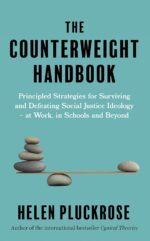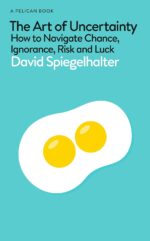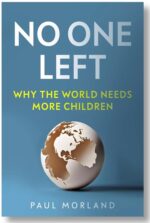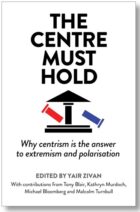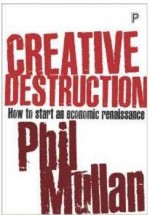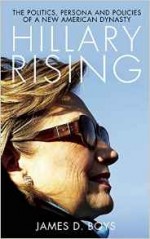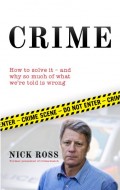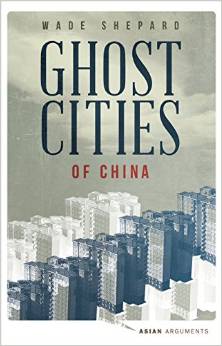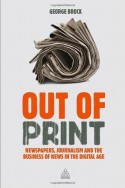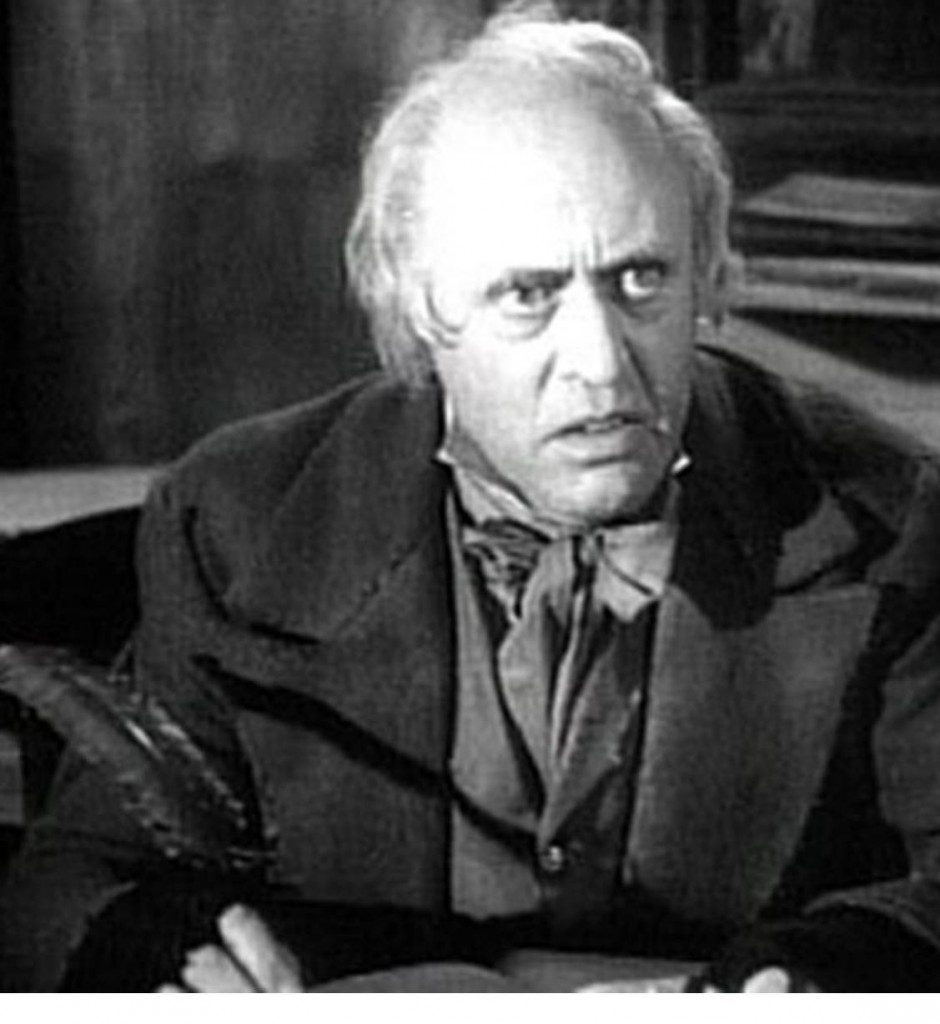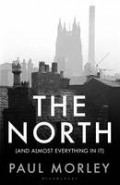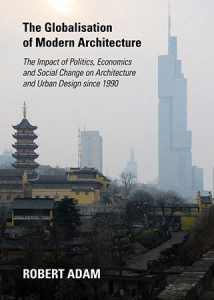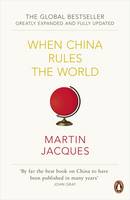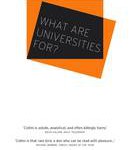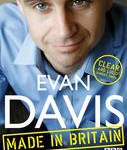What are Bookshop Barnies?
Bookshop Barnies are nothing less than a reinvention of the book launch format. These salon type discussions challenge the author to justify their work in front of an invited audience of specialists and critics. Unlike most book launches where the most challenging task for the author is to sign so many autographs, Bookshop Barnies force them to take a stand for their ideas. Bookshop Barnies are free to attend but are by invite only. Contact: futurecitiesproject@gmail.com
The list of Barnees includes
Prof Richard Sussman on “How to Think About AI: Aa Guide for the Perplexed” (Oxford University Press); Sir David Spiegelhalter on “The Art of Uncertainty: How to Navigate Chance, Ignorance, Risk and Luck” (Pelican Books); Paul Morland on “No One Left: Why the World Needs More Children” (Forum); Jake Wallis Simons on “Israelophobia: The Newest Version of the Oldest Hatred and What To Do About It” (Constable); Peter Hitchens on “A Revolution Betrayed: How Egalitarians Wrecked the British Education System” (Bloomsbury); Rakib Ehsan on “Beyond Grievance: What the Left Gets Wrong About Ethnic Minorities” (Forum); Konstantin Kisin on “An Immigrant’s Love Letter to the West” (Constable); Helen Pluckrose on “The Counterweight Handbook: Principled Strategies for Surviving and Defeating Critical Social Justice―at Work, in Schools, and Beyond” (Swift Press); Yair Zivan on”The Centre Must Hold: Why Centrism is the Answer to Extremism and Polarisation” (Elliott & Thompson); Tom Heap on “39 Ways to Save the Planet: Real World Solutions to Climate Change – And the People Who Are Making Them Happen” (BBC Books); Xing Ruan on “Confucius’ Courtyard: Architecture, Philosophy and the Good Life in China” (Bloomsbury); Laura Dodsworth on “A State of Fear: How The UK Government Weaponised Fear During The Covid-19 Pandemic” (Pinter & Martin); Professor Robert Tombs on “This Sovereign Isle: Britain In and Out of Europe” (Allan Lane); Paul Embery on “Despised: Why the Modern Left Loathes the Working Class” (Polity Press); Michael Shellenberger on “Apocalypse Never: Why Environmental Alarmism Hurts Us All (HarperCollins); Joel Kotkin on “The Coming of Neo-Feudalism: A Warning to the Global Middle Class (Encounter Books); John Lloyd on “The Power and the Story: The Global Battle for News and Information” (Atlantic Books); Matthew Goodwin on “National Populism: The Revolt Against Liberal Democracy” (Pelican); Douglas Carswell on “Rebel: How to Overthrow the Emerging Oligarchy” (Head of Zeus); Phil Mullan on “Creative Destruction: How to Start an Economic Renaissance” (Policy Press); Rob Schmitz on “Street of Eternal Happiness: Big City Dreams Along a Shanghai Road” (John Murray); Nick Ross on “Crime: How to solve it and why so much of what we’re told is wrong” (Biteback Publishing); Jeanne-Marie Gescher on “All Under Heaven: China’s Dreams of Order” (Kaduba House); Wade Shepard on “Ghost Cities of China: The Story of Cities without People in the World’s Most Populated Country” (Zed Books); Iain Macwhirter on “Disunited Kingdom: How Westminster Won a Referendum but Lost Scotland” (Cargo Publishing); Rana Mitter on “China’s War with Japan 1937-1945: The Struggle for Survival” (Allen Lane); Jonathan Meades on “An Encyclopaedia of Myself” (Fourth Estate); Frank Furedi on “First World War – Still No End in Sight” (Bloomsbury Continuum); George Brock on “Out of Print: Newspapers, Journalism and the Business of News in the Digital Age” (Kogan Page); Paul Morley on “The North (and almost everything in it)” (Bloomsbury); Robert Adam on “The Globalisation of Modern Architecture: The impact of politics, economics and social change on architecture and urban design since 1990” (Cambridge Scholars); David Goodhart on ‘The British Dream: Successes and Failures of Post-War Immigration’(Atlantic Books); Jonathan Fenby on “Tiger Head, Snake Tails: China Today, How it Got There and Where it is Heading” (Simon & Schuster); Martin Jacques on “When China Rules the World” (Penguin); Lord Robert Skidelsky on “How Much is Enough?: Money and the Good Life” (Allen Lane); Stefan Collini on “What are Universities For?” (Allen Lane); Evan Davis on “Made in Britain: How the Nation Earns its Living” (Little, Brown); Kerry Brown on “Ballot Box China: Grassroots Democracy in the Final Major One Party State” (Zed Books); Jonathan Glancey on “Nagaland: A Journey into India’s Forgotten Frontier” (Faber and Faber); Martin Sixsmith on “Russia: A 1,000-year Chronicle of the Wild East” (Ebury Press); Matt Ridley on “The Rational Optimist How Prosperity Evolves” (Harper Collins); Read the full list…
____________________________________________________________
Next Barnie…
tbc
Previous Barnies
8 May 2025
”
A short, clear, informed, and provocative guide to AI, with practical examples to bring the subject into daily life; there is much to discuss about the impact of AI on education, business, politics… and humanity itself.
In this timely new work, Susskind draws on over 40 years of research exploring AI and what it means for our future. The Law Society Gazette says that the book “intelligently balances the potential risks and benefits of what lies ahead.” Possibly speaking about AIs impact on journalism, The Scotsman says that it is a book “haunted by its own obsolescence.”
In “How To Think About AI”, Susskind draws on his experience of working on AI since the early 1980s. He argues that to think responsibly about the impact of AI requires us to look well beyond todays technologies, suggesting that not-yet-invented technologies will have far greater impact on us in the 2030s than the tools we have today. This leads Susskind to discuss the possibility of conscious machines, AI-enabled virtual worlds, and the impact of AI on human agency.
Come along and discuss. Only humans need register. While it is still legal, robots are banned.
Buy this book from Amazon.
Book early. Sign up here: EVENTBRITE
Previous Barnies
11 February 2025
”
Quillette magazine says that this book provides resources for “parents whose child comes home from school spouting genderwoo, for junior academics expected to write DEI statements in job and grant applications, and for professional networks who want to organise joint opposition to critical social justice.” In other words, it is a modern survival handbook.
Helen is a liberal humanist writer and commentator with a background in late medieval women’s religious writing. She now focuses primarily on challenging postmodernism and Critical Social Justice activism and their negative effects on the humanities and the political left. Together with James Lindsay and Peter Boghossian, she took part in the “Grievance Studies Affair” that exposed the problems with so-called scholarship in identity/cultural studies. She was the editor-in-chief of Areo magazine.
Based on the author’s years of experience studying, exposing and campaigning for a liberal political understanding of inter alia, the rise of Diversity, Equity and Inclusion programmes and how they impose their principles and punish dissent. The Counterweight Handbook is designed to help people address Critical Social Justice problems in the most ethical and effective way possible.
Watch the video here: https://youtu.be/gxeVlODUKsw
Buy this book from Amazon.
23 January 2025
 David Spiegelhalter on “The Art of Uncertainty: How to Navigate Chance, Ignorance, Risk and Luck”
David Spiegelhalter on “The Art of Uncertainty: How to Navigate Chance, Ignorance, Risk and Luck”
David Spiegelhalter is the Professor for the Public Understanding of Risk at Cambridge University. He is the thinking man’s Tim Harford.
We live in a world where uncertainty is inevitable, so how should we deal with what we don’t know? And what role does chance, luck or coincidence play in our lives? Drawing on a wide range of real-world examples, this is an essential guide to navigating uncertainty while also having the humility to admit what we do not know.
The Times says that it is “part philosophy, part mathematics, part history, it is thoughtful and engaging — without being patronising.” Before I tell you about how good the book is, Spiegelhalter warns that uncertainty means none of us should feel we have to speak with “absolute and unchanging conviction”.
Come and find out for yourself. What’s the chances of enjoying the debate?
Watch the video here: https://www.youtube.com/watch?v=AHTCUTZgasY
Buy this book from Amazon.
20 October 2024
 Paul Moreland on “No-One Left: Why the World Needs More Children”
Paul Moreland on “No-One Left: Why the World Needs More Children”
Paul Moreland is an author and broadcaster who writes and speaks about population and the big demographic trends across the world. His latest book opens with the line: “We are seeing the birth pangs of a new epoch, but it’s an epoch without birth pangs.”
Over 250 pages, Moreland argues that there is a demographic calamity awaiting us. He says that unless we radically change our attitudes towards parenthood, have more children, and embrace a new progressive pro-natalism, we face disaster. Maybe J.D. Vance could get off the couch, come along, and get a few tips.
The Financial Times says that it is a “a highly readable book” whereas The Times says that Moreland “shows an infuriating lack of sensitivity to women’s concerns.” The Daily Telegraph‘s Camilla Tominey called it a “brilliant book”, while the Independent said that is was “simplistic, misguided, sexist, racist and entirely irrational answer to the wrong question.”
You don’t have to have read the book, to join the discussion about whether the world over-crowded, or whether we need more people on the planet? Is the rise of replacement theory a cause for concern? Are we, as Moreland says “running out of people” or will machines fill the productivity gap? Join in the barnie… and buy the book afterwards.
This Bookshop Barnie was hosted at the Battle of Ideas Festival 2024.
Buy this book from Amazon
19 September 2024
 Yair Zivan on “The Centre Must Hold: Why Centrism is the answer to extremism and polarisation”
Yair Zivan on “The Centre Must Hold: Why Centrism is the answer to extremism and polarisation”
Yair Zivan has been the senior advisor to the leader of Israel’s main centrist party for a decade. Here he writes about how centrism can make people’s lives better. His opening essay makes the case for pragmatism, moderation, humility and holistic thinking as the best way to “get things done.” To that end, he has called upon 41 public intellectuals, commentators, academics and politicians to make the case – from Tony Blair to Malcolm Turnbull, from ex-mayor of New York, Michael Bloomberg, to Borge Brende, WEF president. Yair Zivan stands by his own and their words.
The Jewish News said that it offered “an enticing solution to angry politics the world over” The Economist said that the book’s arguments are “needed more than ever,” while The Daily Telegraph called it the “politics of zombies” and angrily proclaimed that “it’s difficult to forgive the damage that centrism has wreaked over the last generation.”
Where do you stand on this particular issue? Has the discussion of the “far right” and “far left” in recent weeks pushed you to take a more moderate, centrist, political position? Is sitting on the fence the same as burying your head?
This will be an ONLINE debate and a Battle of Ideas satellite event. All welcome.
25 January 2024
 Jake Wallis Simons on “Israelophobia: The Newest Version of the Oldest Hatred and What To Do About It”
Jake Wallis Simons on “Israelophobia: The Newest Version of the Oldest Hatred and What To Do About It”
Jake Wallis Simons, the editor of Britain’s Jewish Chronicle provides an incisive, necessary, and tragically timely exlanation of the situation Israel finds itself in. In the Middle Ages, Jews were hated for their religion. In the twentieth century, they were hated because of their race. Today, Jews are hated for something else entirely, their nation-state of Israel. Antisemitism has morphed into something both ancient and modern: Israelophobia. But how did this transformation occur? And why? But it is also pertinent that the Sunday Telegraph asks: “Is it really ipso facto anti-Zionism to criticise the actions of Israel?”
Critic, Daniel Ben-Ami says that Israelophobia is a “vital and important contribution to the fight against anti-Semitism today.” Melanie Philips says that Simons’ book is “a powerful blow against the big lie through which the western left tries to wash from its hands an indelible stain.” Meanwhile, Jewish Voice for Labour claim that the book “demonstrates the bankruptcy and desperation of Israel’s apologists.” The pogroms of October 7th have changed the temper of the debate and fractured political discourse. This will be a civilised conversation to shed light in the darkness.
See the video here: https://youtu.be/eSXWJ4VGhAo
29th October 2023
Peter Hitchens on “A Revolution Betrayed: How Egalitarians Wrecked the British Education System“
Peter Hitchens describes the misjudgements made by politicians over the years that have led to the increase of class distinction and privilege in our education system. This is of course the opposite of what was intended, especially by former Minister of Education Shirley Williams and Margaret Thatcher, her successor in that role, who closed down many more Grammar Schools than Williams.
Given that parents are spending thousands on private tutoring and fee-paying prep schools in order to get their children into these academically excellent schools, Hitchens argues that in trying to bring about an educational system which is egalitarian, the politicians have created a system which is the exact opposite. And what’s more, it is a system riddled with anomalies – Sixth Form Colleges select pupils on ability at the age of 15, which rules out any child who does not have major educational backing from home (heavy involvement by working parents or private tutors, for example) and academies also are selective, though they pretend not to be.
 This Bookshop Barnie was an event at the Academy of Ideas’ Battle of Ideas Festival on 28th and 29th October 2023.
This Bookshop Barnie was an event at the Academy of Ideas’ Battle of Ideas Festival on 28th and 29th October 2023.
The book is available here.
21st June 2023
Rakib Ehsan on “Beyond Grievance: What the Left Gets Wrong about Ethnic Minorities”
Beyond Grievance highlights the growing tensions between the liberal cosmopolitanism which defines much of the British political Left, and the patriotic faith-based conservatism that runs deep in many of Britain’s ethnic-minority communities. With American-style racial identity politics taking root in the UK, the book argues that many liberal-leftists are disregarding the attachments to the traditional triad of faith, family and flag in historically Labour-voting, ethnic-minority communities.
Rakib Ehsan argues that Britain needs a robust civic patriotism which understands that a stable family unit is the finest form of social security known to humankind; a cultural arrangement which appreciates that faith is a vital source of strength and optimism across a diversity of communities. Providing a much-needed corrective to the toxic mixture of tribal identity politics and radical cultural liberalism on the modern British Left, the book presents the case for an inclusive ‘social-justice traditionalism’ rooted in family, security, and equality of opportunity.
 This discussion was online and is held in association with Don’t Divide Us
This discussion was online and is held in association with Don’t Divide Us
See the video here: http://futurecities.org.uk/videos/#rakib
15th October 2022
Konstantin Kisin on “An Immigrant’s Love Letter to the West”
Konstantin Kisin is one half of the Triggernometry podcast (with fellow comedian, Francis Foster). Konstantin is a Russian-British comedian and political commentator who has written a fascinating account of life in the West – and why it is better than Putin’s war-mongering totalitarianism.
An easy argument to win, you might think. But many left-wingers are obsessed with condemning Britain for its hateful, racist, slave-owning, warmongering, elitist, imperialist past. Meanwhile, right-wingers criticise Britain’s woke, intolerant, bureaucratic, lack of belief, decentralised, positive discriminatory present. In such circumstances, it is worth asking what this country offers those looking to the future.
An Immigrant’s Love Letter to the West is an argument for free speech. It’s an argument for liberal democracy and against the illiberalism of contemporary politics. Country Squire magazine says that the book ‘appeals to nuance’. Conversely, the Daily Mail says, without much nuance, that the book shows that ‘Britain is turning into a Soviet state’.
Are we living under an authoritarian regime or should you self-censor from even thinking it? Should we pretend that Britain isn’t riddled with problems, for the sake of a quiet life, or should we stand up for one side against the other in the culture war? This Bookshop Barnie will ask Konstantin Kisin where he gets off coming to this country, saying how great it is?
This Bookshop Barnie was an event at the Academy of Ideas’ Battle of Ideas
See this video here: https://youtu.be/2szahdaW7MY
9th June 2022

Tom Heap on “39 Ways to Save the Planet”
Accompanying the BBC Radio 4 series, this book explores how we might “build a better future, one solution at a time.”
The author is Tom Heap, presenter of BBC Radio 4’s “Costing the Earth” and an environmental journalist and Royal Geographical Society Fellow. This book reveals some of the real-world solutions that offer the potential for tackling climate change, such as exploring clean energy and decarbonisation through wind-turbine repairing robots, carbon storage in seagrass and peat bogs, battery technology and green steel. There is also a call for more environmental legislation and “solutions… found in the courts.” But also included are solutions which some environmental voices reject like molten salt nuclear reactors, hydrogen fuel cells, and efficient concrete, for example.
Indeed, Tom says “Insisting on only engaging with technologies that come top of the environmental virtue scale or companies with no oily blemishes in their history risks striving for the perfect blocking delivery of the good. We don’t have time for that. And when it comes to expecting behavioural change to save the world…the track record is so dismal that I won’t carry on playing a tune that hardly anyone is dancing to.”
The foreword is written by Arnold “The Governator” Schwarzenegger who wants to “terminate (geddit?) pollution.” He says: “we can be the change, and we can save the world”.
But save the world from what, exactly? What is the problem we’re meant to be addressing?
See the video of this Bookshop Barnie here: https://youtu.be/kdeuwl4UEJE?t=3
27th November 2021 (Saturday) at 1pm (UK-time)
Xing RUAN on “Confucius’ Courtyard: Architecture, Philosophy and the Good Life in China”
This book takes a sideways look at the politics, culture and history of China using the way we live as a metaphor to explore the cultural similarities and differences between what we have come to call the “west” and the “east”.
The author, Professor RUAN Xing is Guangqi Chair Professor and Dean at the School of Design, Shanghai Jiao Tong University, and prior to that was Professor of Architecture at Sydney’s University of New South Wales. We will be speaking live to Xing in Shanghai.
TIMES: 1pm – 2:30pm (UK-time); 9pm – 10:30pm (China-time); 8am – 09:30am (New York-time).
The book examines the Chinese courtyard, a yard surrounded by four buildings (known as “siheyuan” in Chinese) and ponders why they have gone out of modern favour, especially in Western societies. Do they symbolise anything: do they encourage community or represent isolation? Do they convey national “meaning” through their presentation of a divergent way of living compared to the way modern Western societies live today? What might we learn and gain from social lessons from the past? The book has been described by Professor Emeritus Knapp at the State University of New York “a truly magnificent work of scholarship for the understanding of China.” Professor Ruan suggests that the book is actually a paeon to our shared humanity.
See the video here: https://www.youtube.com/watch?v=3xH_rVeuJaA&ab_channel=AustinWilliams
RUAN Xing’s “Confucius’ Courtyard: Architecture, Philosophy and the Good Life in China” is available here.
This Bookshop Barnie was part of the Battle of Ideas satellite Festival
10th October 2021 (Sunday)
Kerry Brown on “China”
From its 20th century position as a communist pariah state, in recent years China has been lauded for its development, its economic dynamism, its alleviation of poverty, its urban transformation, and its transport revolution, amongst other things. Now, there is a growing suspicion of its motives. For a brief period, China was popular. However, in recent months and years it has becoming fashionable to dislike it again.
In 2015, British Prime Minister, David Cameron proclaimed a “golden era” of relations with China. Just five years later, Tory MP Tom Tugendhat called the Chinese leadership’s intentions to be “an attack on democracy”. His comments have opened up concerns about Chinese influence in the world. There are worries about Chinese investments, its interference in western technology, its military build-up, its diplomacy with the Taliban, its treatment of Hong Kong. While a pre- and post-Brexit Britain was happy to do business with the biggest power in Asia, British politicians are horrified to discover that China is a one-party state.
So, is China a country to be trusted or to be feared? Is it a democracy in waiting, or increasingly authoritarian? Is China becoming the global superpower or retreating into national defence? Is it bringing development to the under-developed word, or tying them into unsustainable debt?
“China” by Kerry Brown, provides a long view of the country’s development from its position as the world’s largest single economy in 1820, to the second largest economy today. En route, it has gone through immiseration and famine; war and civil war; imperialism and communism. Fifty years ago, it was a rural, peasant economy, today it boasts the rapid emergence of an educated, urbanised middle class. What is the impact on its leadership, its people and its national narrative?
Professor Kerry Brown has written twenty books on modern Chinese politics, has written for every major international news outlet, and been interviewed by every major news channel on issues relating to contemporary China. In this Bookshop Barnie, he will examine the foundations for contemporary Chinese society, but also discuss what likely scenarios there are for the future.
Bookshop Barnies are salon type discussions challenge the author to justify their work in front of an invited audience of specialists and critics. Unlike most book launches where the most challenging task for the author is to sign so many autographs, Bookshop Barnies force them to take a stand for their ideas.
This Bookshop Barnie wais part of the Battle of Ideas Festival on 9 and 10 October 2021
15th July 2021
Laura Dodsworth on “A State of Fear: How the UK government weaponised fear during the Covid-19 pandemic“
GBNews’ Neil Oliver said that this book is “a fascinating consideration of how fear has been used again and again throughout history. The Times’ David Aaronovitch considered that it is merely conspiratorial to think that we “were ruthlessly manipulated into complying with our loss of freedoms”. Conspiracy-mongering aside – how did the state manage to lockdown a free country?
Laura Dodsworth best-selling exploration of the pandemic is primarily a book about fear. Fear of a virus. Fear of death. Fear of losing our jobs, our democracy, our human connections, our health and our minds.
This book investigates an extraordinary year in British life and politics. With stories from members of the general public who were impacted by fear, anxiety and isolation, and revealing interviews with psychologists, politicians, scientists, lawyers, Whitehall advisers and journalists, “A State of Fear” calls for a more hopeful, transparent and effective democracy.
YouTube: A RECORDING OF THE EVENT IS HERE
15th April 2021
 Robert Tombs on “This Sovereign Isle: Britain In and Out of Europe“
Robert Tombs on “This Sovereign Isle: Britain In and Out of Europe“
It may come as some surprise to some, but the story of Brexit has annoyed a lot of people for quite some time. George Magnus, writing in the FT said: “I’ve lost much of my Brexit-related anger. But then I read a column by one of our eminent historians, Robert Tombs of Cambridge University, which stirred things back up again.”
In this short book, Tombs shows that the decision to leave the EU is historically explicable – though not made historically inevitable – by Britain’s very different historical experience, especially in the twentieth century, and because of our more extensive and deeper ties outside Europe. He challenges the orthodox view that Brexit was due solely to British or English exceptionalism: in choosing to leave the EU, the British, he argues, were in many ways voting as typical Europeans.
Reviewing the actual book, The Spectator says it’s “bracing stuff, and very convincing”. Meanwhile, The Guardian’s Fintan O’Toole dismisses it as merely the “Apostle’s Creed of Brexit”, appreciated only by the gullible. Historian, Andrew Roberts says that, as a history of Brexit, this is the “best we will have for many years”.
We will not be re-running the referendum, but come and make your own mind up… through democratic, open debate. Brexiteers and Remainers are welcome. Civilised debate essential.
YouTube: A RECORDING OF THE EVENT IS HERE
18th March 2021
 Paul Embery on “Despised: Why the Modern Left Loathes the Working Class“
Paul Embery on “Despised: Why the Modern Left Loathes the Working Class“
In this Bookshop Barnie, we will be interviewing Paul Embery on his book “Despised: Why the Modern Left Loathes the Working Class”.
Embery, a radical left-wing and trade-union activist for many years describes the working class as that “stratum of society whose members often do the toughest and most grinding jobs”. For comments such as this he has been condemned in equal measure for romanticism – we now live in the Fourth Industrial Revolution, don’t you know – and the working class are computer nerds. Or he’s been condemned for racism, for allegedly invoking memories of a “white working class”.
The book is described by Quillette as an “autopsy and an analysis of the Left’s deeper ideological and cultural errors”. And the left are not pleased. Momentum portray him as a “dangerous reactionary”. He is accused of “crude caricature (whereby) today’s Labour party is presented as a citadel of “wokedom”, dominated by “middle-class, Guardian-reading bohemians and pseudo-intellectuals … pursuing an uber-liberal, youth-obsessed, London-centric agenda.” So writes The Guardian with self-satisfaction or a glaring lack of awareness, depending on your point of view.
Meanwhile, Socialist Resistance (who they?) said it was “a mishmash of Daily Mail editorials”. The Daily Mirror called the book “lucid, angry and brave”.
Come and make your own mind up, comrade.
YouTube: A RECORDING OF THE EVENT IS HERE
18th February 2021
Michael Shellenberger on “Apocalypse Never: Why Environmental Alarmism Hurts Us All“
In the second of two Bi-National Bookshop Barnies between UK-US, we will be inteviewing Michael Shellenberger – an environmental activist of long-standing – who argues that “exaggeration, alarmism, and extremism that are the enemy of a positive, humanistic, and rational environmentalism.” The National Review says that “in place of catastrophism, (his book) offers optimism”, although Scientific American criticised the author for being “not optimistic enough”.
Meanwhile, the LA Times condemns him for “hurling insults at Greta Thunberg, Bill McKibben, Alexandria Ocasio-Cortez, and Greenpeace”. And The Guardian says that this book “takes climate science denial to another level”.
YouTube: A RECORDING OF THE EVENT IS HERE
15th January 2021
Joel Kotkin on “The Coming of Neo-Feudalism: A Warning to the Global Middle Class“
In the first of two Bi-National Bookshop Barnies between UK-US, we will be inteviewing Joel Kotkin who argues that a new, more hierarchical society is emerging: one that resembles that of Medieval times.
At the apex of the new order are two classes―a reborn clerical elite, the clerisy, which dominates the upper part of the professional ranks, universities, media and culture, and a new aristocracy led by tech oligarchs with unprecedented wealth and growing control of information.
Calling all peasants! Everyone is welcome to attend this discussion as long as you doff your cap and wipe your feet.
YouTube: A RECORDING OF THE EVENT IS HERE
13th October 2018

Matthew Goodwin on “National Populism: The Revolt Against Liberal Democracy”
In “Populism: A Very Short Introduction”, author Cas Mudde says that populism derives from the competition between “the pure people” against “the corrupt elite”. A true populist leader (according to the BBC) claims to represent the “will of the people” in opposition to the current system. Nowadays, author, Lionel Shriver says that some people lazily use the word “populist” as a “polite code for racist, xenophobic, anti-semitic and anti-Muslim”.
In this session, Matthew Goodwin, author of “National Populism: The Revolt Against Liberal Democracy” makes a compelling case for serious, respectful engagement with the supporters and ideas of national populism – not least because it is a tide that won’t be stemmed anytime soon.
Goodwin contends that an analysis of the conditions of populism “leads us to a point that many find uncomfortable – that at least some of the grievances on which national populism thrives are legitimate”. He describes that the “loss of a voice” in a political or economic system – marginalised people operating in a system that seems to encompass a lack of democratic accountability – are enlivened to challenge institutions that operate above the nation state.
So is populism good, or bad? What causes it, and why has it become so unpopular to be populist? Are populist movements merely ‘morbid symptoms’ of a dying political order, or the first signs of a democratic renewal!
This is a special Barnie@theBattle debates at the Battle of Ideas festival.
14th October 2018

John Lloyd on “The Power and the Story: The Global Battle for News and Information”
Writing about the Brexit campaign, ex-Guardian editor Alan Rusbridger condemned “influential editors (who) decided their job was to advocate not inform”. His article featured in The New European… and the irony was not missed on readers. However, Rusbridger’s contention that journalism has become discredited is nothing to joke about.
This special Bookshop Barnie asks John Lloyd, renowned author and co-founder of the Reuters Institute for the Study of Journalism at the University of Oxford to explain what has happened to the mainstream media. When does critical journalism become propaganda? When does bias become fake news?
Nowadays, many people seem prepared to shoot the official messenger but only 25% of the UK population believes what they read through social media. While distrust of mainstream media is growing and 20% of the UK public says that is avoids the news entirely.
Is journalism in jeopardy from social media. Has Twitter usurped the broadsheet? If only 6% of UK adults describe themselves as “informed”, is there an even bigger problem than just the means of news dissemination? Are we really in the post-truth age where the reliability of news itself in crisis?
In “The Power and the Story: The Global Battle for News and Information”, John Lloyd answers these questions and more in this panoramic survey of the global news media. Journeying from Putin’s Russia to Trump’s America, from Saudi Arabia to Israel, from Mexico to China, Lloyd shows how the power of investigative journalism matters now more than ever.
Lloyd argues that the responsibility – the duty – of journalism is truly hold power to account. Now is a heroic moment for journalism to prove itself. So how’s it doing?
This is a special Barnie@theBattle debates at the Battle of Ideas festival.
Sunday, 14th October 2018: 16:00 – 17;15. FREE STAGE
21st April 2017
 Rob Schmitz on “Street of Eternal Happiness: Big City Dreams Along a Shanghai Road”
Rob Schmitz on “Street of Eternal Happiness: Big City Dreams Along a Shanghai Road”
A tale of twenty-first-century China, Street of Eternal Happiness profiles China’s distinct generations through multifaceted characters who illuminate an enlightening, humorous and, at times, heartrending journey along the winding road to the Chinese dream.
Venue: The 8 Art Hotel on the Bund, Jia No7 Yan’an East Road, Shanghai 200002
3rd April 2017
 Phil Mullan on “Creative Destruction: How to Start an Economic Renaissance”
Phil Mullan on “Creative Destruction: How to Start an Economic Renaissance”
Western economies are depressed, productivity is low and living standards are in decline. So do we need psychotherapy or a electric shock therapy? This new book argues that the only way to ensure a better future is to create one. It calls for a comprehensive economic restructuring backed by political and cultural change. A new industrial revolution is needed, Mullan says, developing a broad range of emerging and yet unimagined services and products.
This is a book launch of Creative Destruction published by Policy Press (March 2017)
22nd October 2016
 James D. Boys on “Hillary Rising: The Politics, Persona and Policies of a New American Dynasty”
James D. Boys on “Hillary Rising: The Politics, Persona and Policies of a New American Dynasty”
Who needs a new series of “House of Cards” when we have the real thing being performed before our very eyes. On 12 April 2015, Hillary Clinton formally announced her intention to run for President in 2016, casting herself as the ‘champion of everyday Americans’. But in fact, Hillary Clinton and her opponent Donald J. Trump head into the presidential race with the worst favorability ratings of any Democratic or Republican candidate in recent history. Last year, she claimed “Victory is in sight!” One year later, The Economist stated that “the Trump-Clinton outcome may end up resting on a few thousand votes in a handful of states.” Will she now snatch defeat from the jaws of victory?
Dr James D. Boys is an Associate Professor of International Political Studies.
Bookshop Barnie’s New Year Balloon Debate
Tuesday 19th January 2016
6:30pm – 8:30pm
FOYLES, 107 Charing Cross Road
It’s time for the Bookshop Barnie Battle for the Best Book in the World.
Great New Year atmosphere, good company, excellent books and the fun debate itself as seven brave souls argue for ‘the most important book in the world’. Each has just two and a half minutes to present their argument.
This year’s contestants include:
Jonathan Beckman, deputy editor, 1843 on The Babylonian Talmud;
Rob Killick, director, Clerkswell Ltd on Philip Roth’s “American Pastoral“;
Pamela Dow, director of Strategy, Ministry of Justice on Charlotte Brontë’s “Jane Eyre“;
Patrik Schumacher, director, Zaha Hadid Architects on Ludwig von Mises’ “Human Action“;
Simon Clark, director, Forest on Enid Blyton’s “Mr Galliano’s Circus“;
Dr Gillian Dow, director, Chawton House Library/University of Southampton on Jane Austen’s “Emma“;
Louis Savy, director, Sci-Fi London Festival on Mary Shelley’s “Frankenstein”
Hosted by Austin Williams, director, Future Cities Project.
17th October 2015
Nick Ross on “Crime: How to solve it and why so much of what we’re told is wrong”
Much-loved, ‘national treasure’, Nick Ross fronted BBC’s Crimewatch for 23 years… almost a life sentence in itself. After scaring half the nation with dramatizations of vicious criminal attacks, he would sign off with the words “Don’t have nightmares”
Given that provocation is taken into account in all other crimes, why is it ‘heresy’ to suggest that there might be contributory negligence by the victim in a rape case? Why do 50 per cent of all charges for ‘violence against the person’ actually involve no physical injury at all? Is eye-witness testimony ever reliable? Are we all susceptible to crime if the temptation is great enough? Is criminology a refuge for liberal leftist do-gooders?
In this thought-provoking, forensic analysis of the criminal and law enforcement industries, Nick Ross challenges some core assumptions and prejudices about how we think about criminal activity and its remedies. But how responsible is the media in the (mis)perception of crime?
18th October 2015
 Jeanne-Marie Gescher on “All Under Heaven: China’s Dreams of Order”
Jeanne-Marie Gescher on “All Under Heaven: China’s Dreams of Order”
Jeanne-Marie Gescher, OBE is acknowledged as one of the leading thinkers on China. For the last 25 years she has been instrumental in its emerging market dynamics, helping to shape the development of China’s digital and creative industries. In “All Under Heaven”, she has written a definitive critique of China’s development, from year dot to today to explore how the largest nation on earth maintains order.
If “China is in many ways a microcosm of our planet” i,s the role of humanity to question everything, or to compromise in the spirit of community? In comparison with the West, should we be individuals, citizens or subjects? And was Confucius right to suggest that “where wealth and the efficiency of wealth-creation are valued over humanity, chaos will prevail”?
If you’ve ever wondered how China maintains order by its one-party state, but also by its social contract, this is the book for you.
29th March 2015
 Wade Shepard on “Ghost Cities of China: The Story of Cities without People in the World’s Most Populated Country”
Wade Shepard on “Ghost Cities of China: The Story of Cities without People in the World’s Most Populated Country”
This event is part of Suzhou Bookworm Book Festival, Jiangsu, PR China
As China redraws its map with new cities, it isn’t just creating new urban areas, but also engineering a new culture and way of life. Yet, many of these new cities stand nearly empty, construction having ground to a halt due to the loss of investors and colossal debt. Incorporating interviews and on-the-ground investigation, Ghost Cities of China examines China’s so-called “overly ambitious” building programme.
13th January 2015

Iain Macwhirter on “Disunited Kingdom: How Westminster Won a Referendum but Lost Scotland”
On the 18th September 2014, Scotland voted to stay in the Union. In this provocative new book, Iain Macwhirter argues that the UK will never be the same again. When Gordon Brown is feted as a great statesman; Alastair Darling is effectively working on behalf of the conservative government; and the deputy Prime Minister is nowhere to be seen, he has a point.
As Alex Salmond announces that he wants a seat in Westminster, Iain Macwhirter – award-winning political commentator for the Sunday Herald and The Herald – has evaded immigration controls and made his way to Foyles in London to present his case.
17th December 2014

Bookshop Barnie Balloon Debate Xmas Bash
Once again SIX brave souls choose the most important book in the world and then battle it out to remain in the game.
WATCH 2015’s BALLOON DEBATE HERE:
Paul Morley (TV critic) on Nabokov’s Pale Fire;
Michael Daley (director, ArtWatch UK; illustrator, Standpoint magazine) on Euclid’s Elements;
Heather Wakefield (head of Local Government, Unison) on Carolyn Steedman’s Landscape for a Good Woman;
Michael Shaw (programme director, TES) on Houlston’s Enquire Within Upon Everything;
Alan Hudson (director, Leadership Programmes for China, Oxford University) on Melville’s Moby Dick;
Graham Stringer MP (member, Science & Technology Select Committee) on Nigel Lawson’s An Appeal to Reason: A Cool Look at Global Warming;
WINNER: Annie Warburton, Creative Programmes Director, Crafts Council on Homer’s The Odyssey;
18th October 2014
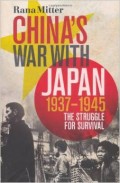
Rana Mitter on “China’s War with Japan 1937-1945: The Struggle for Survival”
A special Bookshop Barnie@theBattle with Rana Mitter, professor of the History and Politics of Modern China. British history teaches us that WWII started in 1939. However, Mitter points out that for China, the war started with the Japanese invasion in July 1937. Around 14 – 20 million Chinese had died by 1945. So is it legitimate for China to see Japan as their major hate figure after all these years (what about Britain’s imperial barbarism during China’s century of humiliation, for example)? Should China forgive and forget? Should Japan acknowledge and apologise? Should the world be worried about their current territorial and political tensions? As many reviewers have pointed out, China’s suffering in the war was not a secret, so why is the West empathising now. Published in America as “Forgotten Ally“, why are we so keen to feel China’s pain? Could it be that America is shifting its historic east-Asian allegiances? The Independent calls this book “a real masterpiece”; The Spectator suggests that Mitter lets Mao off the hook. All acknowledge that this is a great read.
16th July 2014
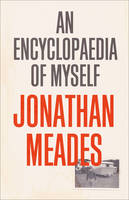
Jonathan Meades on “An Encyclopaedia of Myself“
Meades is one of those “national treasures” much beloved of Private Eye. His encyclopaedic memoir is described as “a portrait of a disappeared provincial England”, in which Meades takes a stroll down real and false memory lane. Meades’ latest TV series, ‘Concrete Poetry’, which waxes lyrically in praise of Brutalist architecture, led to the Financial Times calling him “provocative, opinionated, allusive, variously heretical and revisionist, Jonathan Meades is the antithesis of the apologetic orthodoxy of BBC cultural output”. Clive James described Meades as the reincarnation of John Betjeman, while A A Gill says that “Jonathan Meades is the Jonathan Meades of his generation”. Indeed, come and see if this is Meades at his most inspiring or incestuous. 6pm for a 6:30 start. Free but please RSVP: futurecitiesproject@gmail.com This is a special event as part of mantownhuman’s Critical Subjects Summer School
27th January 2014
Frank Furedi on “First World War – Still No End in Sight“
This book argues that the battle of ideas which crystallized during the course of the Great War continue to the present. Furedi claims that the Culture Wars of today are the latest expressions of a century long conflict. Frank Furedi is a social commentator and author and emeritus professor of sociology at the University of Kent in Canterbury. Is his book a contemporary analysis; crass comparison or First World War anniversary porn. This was an opportunity to take sides in the Gove/Cameron “importance” vs Paxman/Blackader “folly” of war debate.
14th January 2014
 George Brock on “Out of Print: Newspapers, Journalism and the Business of News in the Digital Age”
George Brock on “Out of Print: Newspapers, Journalism and the Business of News in the Digital Age”
Emily Bell writing in the New Statesman says ‘[George Brock] delves back into the history of journalism and demonstrates the shaky beginnings and rapid innovation that powered news journalism for three centuries before the maturation and slow decline of the business in the 20th century. His précis of the history is fascinating and elegantly done.’ Brock is Head of Journalism at City University London and was a previous editor for The Times (of London). Last year he wrote that “Leveson Inquiry into the culture, practice, and ethics of the press in Britain has turned out to be a cathartic moment”. Where does he stand now? Is it enough to complain that The Royal Charter on press regulation was “a rushed botch”?
19th December 2013
Bookshop Barnie Xmas Bash Balloon Debate.
Our traditional Christmas Party with a Balloon Debate in which six brave souls have just two and a half minutes to defend the “Best Book in the World”. This year’s panelists were:
-
- WINNER: Barb Jungr (chansonnière) on Kressmann Taylor’s “Address Unknown“
- Colin Tweedy (ex-head Arts & Business) on Kenneth Clark’s “Civilisation“
- Jonathan Glancey (journalist, author and broadcaster) defending Joseph Heller’s “Catch 22“
- Evan Davies (economist, journalist and presenter) defending WC Sellar and RJ Yeatman’s “1066 and All That”;
- Martin Durkin (managing director, WAG TV) defending P.G. Wodehouse’s “The Golf Omnibus“
- Ed Howker (investigative journalist and broadcaster) defending Eric Carle’s “The Very Hungry Caterpillar“
Wine, conversation, Christmas books… and a great Barnie. Many thanks to all the Barnees and Barnettes
25th October 2013
 Paul Morley on ‘The North (and almost everything in it)”
Paul Morley on ‘The North (and almost everything in it)”
Paul Morley grew up in Reddish (a real place)… and has always thought of himself as a northerner without really knowing what it meant. This book is his “journey” (without sounding too southern about it) of self- and regional- discovery. From Wordsworth’s poetry, Larkin’s reflections and Formby’s ukulele he seeks to show that northern-ness goes deeper than just t’accent. Morley wants ‘The North’ to be seen as ” a great original piece of writing… (but not) so experimental that you alienate an audience.” Come and judge if this is northern soul or soft-southern identity politics. Free. This Barnie was part of the Battle of Ideas festival
6th August 2013
 Robert Adam on ‘The Globalisation of Modern Architecture: The impact of politics, economics and social change on architecture and urban design since 1990’
Robert Adam on ‘The Globalisation of Modern Architecture: The impact of politics, economics and social change on architecture and urban design since 1990’
Based on the principle that design unavoidably follows social change, politics and economics, this analysis casts a new light on recent architecture. Adam discusses how globalization is driving out the uniqueness and character of cities and reducing it to a monotonous regularity. But does architecture – do architects – have no inner conviction, leaving them prey to the vicissitudes of outside forces? So is Modernism a ‘style’ or a philosophy? Modernists, traditionalists, classicists, futurists… discuss.
24th July 2013
 David Goodhart on ‘The British Dream: Successes and Failures of Post-War Immigration’
David Goodhart on ‘The British Dream: Successes and Failures of Post-War Immigration’
In The British Dream, David Goodhart argues that liberal thinking on immigration has, in recent years, promoted two contradictory ideals: ‘solidarity’ – we are unified by a common purpose – and ‘diversity’ – everyone is different. He suggests that diversity has won out over solidarity… and we need lower immigration and more patriotism to reverse that trajectory. With politicians of all parties currently playing the immigration card, come and see what you think?
9th January 2013
 Jonathan Fenby on ‘Tiger Head, Snake Tails: China Today, How it Got There and Where it is Heading’
Jonathan Fenby on ‘Tiger Head, Snake Tails: China Today, How it Got There and Where it is Heading’
The Guardian says: “As a handbook on the confusing state of contemporary China– covering the economic, political, social and historical essentials of the story –Tiger Head, Snake Tails succeeds admirably… as a one-stop guide to political and economic realities in China today, Tiger Head, Snake Tails is fast-moving, informed and illuminating.” But just because the Guardian says so, doesn’t make it true
18th December 2012
Bookshop Barnie Xmas Bash Balloon Debate
Seven brave souls argued for the best book in the world… ever! Contestants had 3 minutes to present their case, get grilled and risk being voted off.
This year’s classy list of competitors included: WINNER: David Aaronovitch, columnist, The Times on Giovanni Boccaccio’s “The Decameron“; Richard Swan, teacher and medievalist on “Sir Gawain and the Green Knight“; Matthew Taylor, director RSA and Tony Blair’s (ex-)chief spin doctor on Charles Dickens’ “Great Expectations“; Eamonn Butler, director, Adam Smith Institute on Adam Smith’s “The Wealth of Nations“; Rachel Armstrong, TED fellow and science writer on William Bryant Logan’s “Dirt“; Parminder Bahra, executive producer, The Wall Street Journal Europe, Douglas Adams’ “Hitchhikers’ Guide to the Galaxy”; Carole Stone, chairman of YouGovStone, networker extraordinaire on Dale Carnegie’s “How to Win Friends and Influence People“.
26 October 2012
 Martin Jacques on ‘When China Rules the World: The End of the Western World and the Birth of a New Global Order’
Martin Jacques on ‘When China Rules the World: The End of the Western World and the Birth of a New Global Order’
Martin Jacques, visiting professor at Tsinghua University in Beijing suggests that this is China’s century. Indeed, its economic performance seems to vindicate his analysis. But then again, between 1960 and 1972, the Greek economy grew at 8% p.a. (more than China’s projections for 2011-2015).
30 July 2012

Robert Skidelsky on ‘How Much is Enough? Money and the Good Life’
Robert and Edward Skidelsky argue that the “unending pursuit of wealth is madness” and want to bring the “limitless desire for wealth under the control of an objective concept of the good”. As such “economics” they say, “is a moral science”. In this book, they trace the concept of the good life from Aristotle to the present and show how our lives over the last half century have strayed from that ideal. Is this yet another book arguing for the happiness, social equity, the nobility of savagery? Or are they filling the moral void in our modern, consumerist society?
28 March 2012
 Professor Stefan Collini on ‘What Are Universities For?’
Professor Stefan Collini on ‘What Are Universities For?’
Here, Stefan Collini challenges the common claim that the priority for universities is to contribute to economic growth. “What Are Universities For?” offers a compelling argument for completely rethinking the way we see our universities. But if the very idea that universities are spaces for intellectual reflection is increasingly seen as out of date, should we be defending them?
4 January 2012
 Evan Davis on ‘Made in Britain : How the Nation Earns its Living’
Evan Davis on ‘Made in Britain : How the Nation Earns its Living’
“Made in Britain ” is an optimistic state-of-the-nation book. In it, Evan Davis argues that we shouldn’t worry so much about UK ’s Western decline… but then again, it was published 6 months ago. So why does Britain – one of the richest nations in the world (the sixth-largest manufacturing nation in the world in 2008) – seem so depressed?
20 December 2011
Bookshop Barnie Xmas bash balloon debate
The defence of the Best Book in the World: John Fitzpatrick (director, Kent Law Clinic) on “The Selected Works of WB Yeats“; Shiv Malik (investigative journalist, co-author, Jilted Generation) on Norman Mailer’s “Miami and the Siege of Chicago: An Informal History of the Republican and Democratic Conventions of 1968“; Humphrey Hawksley (BBC foreign correspondent) on Voltaire’s “Candide“; Jeremy Myerson (director, Helen Hamlyn Centre for Design and founder, Design Week) on Victor Papanek’s “Design for the Real World“; Shirley Lawes (lecturer in modern foreign languages, Institute of Education) on Emile Zola’s “Germinal“; Nicolette Jones (literary critic, Sunday Times) on George Eliot’s “Middlemarch”; and Cosmo Landesman (film critic, Sunday Times) on… er… his own book, “Starstruck: Fame, Failure, My Family and Me“
19 July 2011
 Kerry Brown on ‘Ballot Box China: Grassroots Democracy in the Final Major One Party State’
Kerry Brown on ‘Ballot Box China: Grassroots Democracy in the Final Major One Party State’
Since 1988, China has undergone one of the largest, but least understood experiments in grassroots democracy. Across 650,000 villages in China, with over one million elections, 300,000 officials have been elected. The Chinese government believes that this is a step towards ‘Democracy with Chinese characteristics’. So is this the same thing as ‘democracy’? Is it the best form of government except for all those other forms that have been tried?
28 June 2011
 Jonathan Glancey on “Nagaland: A Journey to India’s Forgotten Frontier”
Jonathan Glancey on “Nagaland: A Journey to India’s Forgotten Frontier”
Nagaland, on the verge of signing a peace deal with India, made this book is very timely. Glancey is the architecture critic for The Guardian, but this book explores the Naga hills of India. Part travelogue, part personal testimony, part political exploration, it takes us through Adolf Hitler and Hirohito; to “well-meaning colonialists”; and to one of the most important, devastating battles of the Second World War.
12 April 2011

Martin Sixsmith on “Russia: A 1,000-year Chronicle of the Wild East”
Martin was the BBC Moscow correspondent for many years and this book explores Russia’s story: from its foundation to its modern incarnation. Covering politics, music, literature and art, it accompanies the BBC’s 50-part Radio 4 series, which marks the 20th anniversary of the dissolution of the USSR. Today, April 12th, 2011 is also the 50th anniversary of Yuri Gagarin becoming the first man in space. This special Bookshop Barnie was held in association with the British Council as part of the Russia-themed London Book Fair 2011
3 March 2011

Julie Hill on ‘The Secret Life of Stuff: A Manual for a New Material World’.
“We all love stuff – I am no exception”, says Julie Hill, former director (now associate), Green Alliance and goes on to argue that: “we humans have a come a long way – why waste our talents worrying about bins?” Consequently, The Ecologist mgazine says that Hill’s book is “not especially realistic”. Questions to ponder: In an era of austerity, should we argue for restraint or growth? In an age of limits, do we need more… or fewer choices? It was an evening of energy-intensive debate with just a few old recycled arguments
18 January 2011

Matt Ridley on ‘The Rational Optimist How Prosperity Evolves’
In a recent review, Fred Pearce criticises Ridley for becoming the ‘chief cheerleader for a cornucopian view of the world’. George Monbiot goes one further, saying that ‘it’s the same old cornutopian nonsense we’ve heard one hundred times before (cornutopians are people who envisage a utopia of limitless abundance).’ What’s wrong with cornucopias!
7 December 2010
BOOKSHOP BARNIE XMAS BASH BALLOON DEBATE
Which book – and its defender – deserves to stay in the balloon?”. A panel of brave souls argues – for just two and a half minutes each – for the best book… ever. You decide. Balloonists include: Godfrey Allen, chief executive of Apex Trust (finding employment for ex- Offenders), on Harper Lee’s ‘To Kill A Mockingbird’; Shirley Cramer, CBE, chief executive, Dyslexia Action on Anne Tyler’s ‘Ladder of Years’; Dave Bowden, coordinator, Institute of Ideas Battle Satellite programme on Oscar Wilde’s ‘The Picture of Dorian Grey’; Philippe Legrain, author, Aftershock: Reshaping The World Economy After The Crisis on Mancur Olson’s ‘Power and Prosperity’; Matthew Taylor, chief executive, Royal Society of the Arts; former chief adviser on Political Strategy to Tony Blair on Dan Gilbert’s ‘Stumbling on Happiness’; Martin Wright, editor-in-chief, Green Futures; visiting judge, Ashden Awards for Sustainable Energy; on Derek Walcott’s ‘Omeros’; Razia Iqbal, special correspondent for BBC News; presenter, Talking Books on David Grossman’s ‘To The End Of The Line’; and Zoe Williams, Guardian columnist on J. M. Coetzee’s ‘Waiting for the Barbarians’.
2 November 2010

Natalie Haynes on “The Ancient Guide To Modern Life”
This was a Battle of Ideas satellite event. ‘The Ancient Guide To Modern Life’ explores events and characters from the past, that are, says Haynes, “sufficiently sparsely drawn for us to insert our own subtext”. But is this book about Greek narrative, or is it merely a paeon to “Buffy the Vampire Slayer Series 3”?
30 October 2010

David Aaronovitch on ‘Voodoo Histories: the Role of Conspiracy Theories in Making modern History’
This special Battle of Ideas Bookshop Barnie was a great discussion… but we were being watched.
3 August 2010

Gary Younge on ‘Who are We – and Should it Matter in the 21st Century?’
Younge says: ‘We are more alike than we are unalike. But the way we are unalike matters. To be male in Saudi Arabia, Jewish in Israel or white in Europe confers certain powers and privileges that those with other identities do not have. In other words identity can represent a material fact in itself’.
Testimonials
Evan Davis, broadcaster and presenter:
“It was both exhilarating and a little horrifying to discover that quite a few people had not only read my book, but also thought about it. The questioning was really useful”
Stefan Collini, professor of English Literature and Intellectual History, University of Cambridge:
“The whole event was unusually enjoyable and stimulating: the audience seemed engaged and responsive, yet not at all disposed to let me off lightly – they really wanted to argue the points. Just the right mix of good humour with a serious, directly-expressed concern with the issues. It’s an excellent formula – keep it going”
Jonathan Glancey, architecture and design correspondent, The Guardian:
“It was all a bit of a roll; much more fun than 95% of architecture events – in England, anyway – when most people seem so buttoned up”
Martin Sixsmith, BBC broadcaster and author of “Russia: A 1,000-year Chronicle of the Wild East”:
“It didn’t quite come to fisticuffs, but it easily could have done. Not bad for a discussion about history!”
Matt Ridley, science writer and author of “The Rational Optimist”:
“A Bookshop Barnie at Foyles is a great event. Austin Williams makes sure he gets a real debate going, with good questions, fast answers and lots of straight talking. I enjoyed it a lot.”
David Aaronovitch, columnist, The Times, author of “Voodoo Histories”:
“One of the best things I’ve done, thanks to you and the audience. Real morale-booster!.”
Kerry Brown, head, Asia Programme, Chatham House, author of “Ballot-Box China”:
“Many thanks for this, and for arranging the event, which I learned a lot from and was very glad to be at… Great stuff”
Gary Younge, feature writer and columnist, The Guardian :
“If you’re only interested in promoting your book then there are other places. But if you’re interested in defending it, starting a conversation about the ideas in it and engaging with an interested audience then this is the place for you. Combative, convivial and constructive: at the Bookshop Barnies people don’t necessarily turn up to hear you talk, but to respond to what you have to say.”
Peter Hitchens , author, journalist, Mail on Sunday:
“The book trade is under siege from TV. A place that ought to be the last refuge of coherent thought and serious debate has been invaded by celebrity and meretricious rubbish. On one small front, here’s some laudable resistance: a space where authors and readers can discuss books properly and readers can rediscover the proper purpose of bookshops – not the marketing of ghost-written memoirs, but the propagation of ideas and the discovery of truth.”
Kevin Bloom, South African journalist, author “Ways of Staying”:
“I had thought that after more than a year speaking about the themes in my book, there was nothing new to say, no fresh insight to be gained through interviews or discussions. About twenty minutes in, the Bookshop Barnie disabused me of that notion. Mr Williams knows how to get at the polemical core of a text, and he knows, too, how to carry the audience there with him..”
David Willets, MP:
“I hadn’t heard about the Bookshop Barnies previously but it’s a great idea and I thoroughly enjoyed it. It’s particularly gratifying to know that discussions continued in the pub until closing time!”
Robert Service, historian, and author of “Trotsky: A Biography”:
“It was a lively event… the Bookshop Barnies generally provide a pretty level playing field for authors. It was fun, it was productive.”
Edwin Heathcote, architecture correspondent, Financial Times:
“A big panel of primadonnas and huge audience. I was impressed.”
John Fitzpatrick, director, Kent Law Clinic:
“You were, as planned, as predicted, as thoroughly deserved, and as universally acknowledged, the total star of the night.”
Tiffany Jenkins, director, Arts & Society, Institute of Ideas:
“It was a great night.”
Tristram Hunt, historian, broadcaster and columnist:
“Thanks a lot – I really enjoyed the evening… An intelligent, engaging and provocative evening, the Barnie delivers book-sales and crackling, critical debate.”
Johnny Ball, TV icon:
“I absolutely loved last night.”
Nandan Nilekani, founder, Infosys Technologies:
“Thanks a lot for having me in this unique event!… Bookshop Barnies is a great format and intellectually stimulating. I had great fun and enjoyed the the very engaged audience and the feisty interlocution of Austin Williams.”
Richard Reeves , director, Demos:
“Thank you for I inviting me; I loved it. Great atmosphere and people and questions: you chair deftly and well.”
Philip Gwyn Jones, publisher, Granta Books:
“I did really enjoy it… an uncommonly stimulating book event (as your Barnies manifesto promises) which was pitched and sustained at a very high level. No dumbing down in sight here, thank all the gods. So, thank you. I do hope we can do other events with you.”
Alain de Botton, philosopher:
“What fun it was last night – thanks so much for including me in the debate… I felt like I learned a lot.”
John Ralston Saul, philosopher, author ‘The Collapse Of Globalism: and the Reinvention of the World’:
“I really did enjoy the Barnie… very combative.”
Jeremy Myerson, Helen Hamlyn Chair of Design, Royal College of Art:
“I really enjoyed it… Great stuff… the whole mix made for an entertaining event”
Philippe Legrain, economist and author ‘Aftershock: Reshaping the World Economy After the Crisis’:
“Thank you and everyone who came last night for a great event. I really enjoyed it.”
Humphrey Hawksley, BBC foreign correspondent:
“Thank you for a splendidly stimulating evening. More than any of the events I have been to on this, this one really teased out the issues and moved furniture around in people’s brains – including mine… I have just ordered Enemies of Progress.”
Madeleine Holt, arts correspondent, Culture Show & Newsnight:
“What craic. Thank you for a top evening.”
Francis Wheen, author, journalist and broadcaster:
“I enjoyed the Barnie. I’ve been thinking about some of the comments and questions from the audience ever since: it was far more challenging and stimulating than a normal bookshop event.”
Susan Neiman, director, The Einstein Forum:
“It was a great pleasure, and I thank you for organizing it.”
Yvonne Roberts, senior associate, The Young Foundation:
“Really enjoyed last night thank you – and bought the book. Must be your wit that drew money from my purse! And a great venue to hold it.”
Maurice Davies, deputy director, Museums Association:
“Thanks for inviting me to last night’s Barnie. I enjoyed it – stimulating and witty. Indeed it rekindled my interest in politics… I’d be delighted to come to other Barnies in future.”
Fiona Fox, Chief Executive, Science Media Centre:
“Great night. Another triumph.”
Rebecca Jenkins, author, “The First London Olympics: 1908“:
“A particular highlight of November 2008… a lively exchange of ideas.”
Ann Furedi, chief executive, British Pregnancy Advisory Service:
“An excellent event.”
Kate Cheeseman, Bafta-winning TV director:
“It was interesting… Look forward to coming along to some more.”
Mike Hulme, founder Director, Tyndall Centre for Climate Change:
“Many thanks. I enjoyed the event and the opportunity to put my arguments to a group of the engaged and the critical.”
Mark Stevenson, author/ director, Flow Associates:
“The talk was great – and you are a fabulous interlocutor and host… I’ll be looking out for more Bookshop Barnies”
Marianne Talbot, director of Studies in Philosophy, Department for Continuing Education, Oxford University:
“Thanks for inviting me… I thought the audience was splendid!”
Stuart Silver, comedian:
“I really enjoyed it.. would love to come to the next.”
Luis Belmonte, events organiser, Royal Insitute of British Architects:
“Thank you very much indeed for organising so many good discussions: in these post-modern times of nihilism, consumerism and individualism, your Barnies and intellectual debates are oases of hope in the desert of disenchantment.”
James Delingpole, journalist:
“It was lovely… and however rough the evening was, it was jolly good training. Thanks so much for asking me.”
Cosmo Landesman , film correspondent, Sunday Times:
“It was a very enjoyable experience – and you are indeed a master of ceremonies and the art of the interview. Thanks for inviting me and hope to see you at future Barnies.”
Vivian Archer, owner, The Newham Bookshop:
“Thank you, we all really enjoyed it.”
Andy Shaw, Business Development & Strategy Director, BTAgilemedia:
“It was an excellent evening – which would not, of course, been possible without your perceptive questioning and relaxed, but engaging style. ”
Annie Bruzzone, Publications officer, Policy Network:
“Thank you very much for the invite, I really enjoyed the debate.”
Amanda Reekie, founder, Stratton & Reekie:
“I enjoyed it very much indeed. Certainly challenged ze leetl grey cells… Very informed debate followed the talk..”
Michael Caines, Times Literary Supplement:
“I greatly enjoyed it, thanks.”
Timothy Hornsby, Chairman Designate, Horniman Museum:
“Many thanks for a fascinating evening.“
Ken Arnold, Head of Public Programmes, Wellcome Trust:
“Many thanks for a splendid evening. It really was very enjoyable.“
Dominic Meyrick, Lighting principal & partner, Hoare Lea:
“Really interesting.“
Alan Shipman, lecturer in economics, Open University:
“Just wanted to say what an informative Barnie that was – appropriately challenging the challenge to the orthodoxy, and maximally testing the author’s power of speaking on their feet. It’s always satisfying to find so many of my own questions successfully put by others.“
Wendy Earle, Online Education Manager, BFI Education:
“I enjoyed it very much. Will have to try and make more of them.“
Stanley Feldman, author, ‘Panic Nation: Exposing the Lies We’re Told About Food and Health’:
“We enjoyed the Barnie – stimulating as usual.“
Ruth Eaton, author, ‘Ideal Cities: Utopianism and the (Un)Built Environment’:
“Your balloon debate was brill.“
Sarah Mole, BBC Producer:
“Interesting stuff – a very thought-provoking debate.“
Nicholas Spice, publisher, London Review of Books:
“I found it very interesting – very much the kind of thing we should be doing more of in the shop.”
Richard Lindley, author “Panorama: Fifty Years of Pride and Paranoia“:
“Congrats to you on the series.“
Professor Conrad Lichtenstein, chief operating officer, Population Genetics Technologies:
“Thank you for the enjoyable and interesting evening last week.“
Geoff Mulgan, director, Young Foundation:
“Thanks for setting up the Barnie last night. Much appreciated, and engagingly spiky!”
Rachel Stevens, literature advisor, British Council:
“Thank you for organising such a terrific Barnie… It was great fun, and really engaging. It sounds very simple, but one of the most interesting elements for me was being part of such an eclectic mix of people from a variety of sectors.”
Mike Proudfoot, head, Department of Philosophy & School of Humanities, University of Reading:
“I very much enjoyed the ‘Bookshop Barnie’… I thought the format was just right. There were the right number of people there – enough to ensure a lively discussion, but not too many to destroy the friendliness and intimacy of the occasion. That was very much assisted by the pre- and post-discussion socialising.”
Shalom Lappin, Professor of Computational Linguistics, Department of Philosophy, Kings College London
“Many thanks for a very enjoyable evening. I appreciate your having invited me.”
Astrid Kirchner, founder, Urbaneer:
“I really enjoyed last night’s Barnie.”
Jane Hegarty, PR:
“I enjoyed the evening – always lovely to hear clever people discussing books – and also thought you were an excellent MC.”
Mark Goldring, CEO, Voluntary Services Overseas:
“I thought the efforts at a debate were brave, worthwhile and worked reasonably. Thanks for the contact, I’d certainly come again“
Norman Lewis, Chief Strategy Officer, Wireless Grids Corporation, USA:
“Just a quick email to say how much I enjoyed this week’s Bookshop Barnie. A really excellent discussion, well done. I am ruing the fact that I have not been able to attend previous ones.“
Suman Bhuchar, Watermans:
“I really had a good evening.”
Kate Hammer , director, Throughline:
“It was great. Makes me want to write a book just so’s I can be Barnied. The whole artful exchange rocked. He’s very impressive. And so are you, a master at intelligent conversation.”
Paul Hyett, past-president Royal Institute of British Architects and chairman of global architecture firm RyderHKS:
“It was great fun… indeed I thought the format, the venue and the delegate list was great. Let me know when you are doing another because even if not invited to speak I would like to come and listen…. Barnie’s are great“
Jeremy Stangroom, The Philosophers’ Magazine:
“Hugely enjoyable.”
Tom Oliver, Head of Rural Policy, Campaign for the Protection of Rural England (CPRE):
“I thought the free fire quality of the debate was very good. There were some interesting people there from a healthy range of positions… Twas a great evening! Many thanks. V good fun. Thank Heavens you’re out there doing this stuff.”
Kevin Rooney, head of Social Science. Queens’ School, Bushey:
“Thought provoking in the true sense of the word last night. Well done.”
Terence Bendixson, Secretary, Independent Transport Commission
“I greatly enjoyed last night’s Barnie… Do keep me on your mailing list for future events.”
Dr Peter Duncan, lecturer, Health Promotion, Centre for Public Policy Research, King’s College London:
“Thank you very much for an informative and entertaining ‘Bookshop Barnie’. I enjoyed the event and thought the subject and the discussions it led to were provoking and interesting.“
Heather Wakefield, National Secretary, UNISON Local Government Service Group:
“Most enjoyable… Will hope for future invitations.”
Stephen George, producer, Robert Elms show, BBC London:
“I really enjoyed it.“
Ken Worpole, writer on urban social policy (and participant in Christmas Bash Balloon Debate 2005):
“I enjoyed hearing the other panellists who were all on top form.“
John Porter, Senior Programme Director, Common Purpose London:
“Last night was great! I enjoyed the format, the interaction with new people, the warm welcome, the stimulation… and the wine.”
Christine Yates, Equalities & Diversity Consultant, Imperial College London
“I really enjoyed it… I look forward with keen anticipation to the next author.”
Francis Gilbert, author, “Yob Nation: The Truth About Britain’s Yob Culture”:
“I enjoyed it… very good and pertinent.”
Carol Shooter, Membership Services Manager, Association of Charitable Foundations:
“I did very much enjoy the Barnie focusing on risk – thank you very much for inviting me.“
Martin Summers, International Social Accountability Manager, British American Tobacco:
“Thanks for a very fun and informative night out. I particularly liked the style and format, which yielded better results than the usually tepid love-ins that accompany book readings.”
Fiona Price, Marketing & Publicity Manager, Verso Press:
“I hope we might be able to work together on something similar for one of our other authors.”
Frances Quinn, freelance journalist:
“I thought the Bookshop Barnie was great – a really interesting topic and very thought-provoking responses from the guests. Thanks for inviting me. I’d love to come again.“
Michael Massey, Associate Fellow Chatham House:
“I kept finding my agreement with (the author’s) general thesis unravelling the more that (the author) explained particular examples.“
Peter Higgins, Creative Director, Land Design Studios:
“It was a stimulating event that should continue if you can convince your sponsors.”
Pallavi Vadhia, Publications Sales and Marketing Officer, National Portrait Gallery:
“Let me know if there are any events that we can co-ordinate in the future.”
Ed Dorrell, news editor, Architects’ Journal:
“Good as ever”
Stella Bell, Carbon Offset manager, ClimateCare:
“I enjoyed it and look forward to hearing about future Barnies”
Annie Caulfield, author “Show Me the Magic: Travels Round Benin by Taxi“:
“Enjoyed the Barnie, although I did feel there were more interesting questions from the floor than answers…”
Patricia Austin, course director, Creative Narrative Environments, Central St Martin’s College:
“The Barnie was fun. Many thanks for inviting me.”
David Logan, director, The Corporate Citizenship Company
“I really enjoyed the evening”
Jack Jackson, author, “Diving with Sharks” and “The World’s Great Adventure Treks”:
“I enjoyed it.”
Nicholas Rau, senior lecturer, Department of Economics, University College London:
“Thanks again for inviting me… I must say I was greatly impressed. A real ‘Joss Stone Glasto 2004’ moment.”
Sheila Hayman, author, screenwriter, director:
“It was very entertaining… More please.”
Perry Walker, head, Democracy and Participation, New Economics Foundation:
“I’m glad I finally made it.”
Shanta Acharya, ex-Executive Director, Initiative on Foundation and Endowment Asset Management, London Business School:
“Thanks… that was interesting last evening… Glad I could come along.”
Stuart Simpson, Analyst: Stakeholder Deliverables, Aviva:
“I think the Barnies are a great format. Good speakers and the right audience.”
Jack Klaff, playwright and actor:
“It was bracing to witness people asking tough questions of an author. I certainly thought it was a really good talking point and as … a lot of the issues raised are important to me and it was terrific to hear them argued about in such a well-informed and pretty rigorous way.”
Claire Fox, director, Institute of Ideas, panellist Radio 4’s ‘Moral Maze’:
“A fantastic event… a new take on book launches…. intellectually stimulating, enjoyable and I got to meet a lot of very interesting people.”
Greg Klerkx, author “Lost in Space: The Fall of NASA and the Dream of a New Space Age”:
“I thought the discussion was more interesting than the book… In any event, it was fun and I hope I added something of value to the proceedings.”
Tim LeBon, registered existential therapist:
“I enjoyed it. A good mix of lively intellectual banter and socialising.”
Gulum Alamgir, NUS FE Black Students Officer:
“It lived up to my expectations and then some, you have certainly given me some terrific ideas on how to create a ‘debate and discussion’ atmosphere.”
Ian Joseph, Managing Director, HOPE worldwide – UK:
“First time I’d been to a ‘barnie’ and really enjoyed it. Thanks for the invitation.”
David Young, Project Co-ordinator South-East, SUSTRANS (Sustainable Transport Network)
“I found the event and the company stimulating, I think I was the only one awake on the train home, so much to think about, I enjoyed it, well done and thanks for the invite.”
Ceri Dingle, director, WORLDwrite:
“I loved it.”
Fiona MCEwen, researcher, Social, Genetic and Developmental Psychiatry Centre, Institute of Psychiatry:
“I really enjoyed the Barnie… I have bought the book.”
Julian Baggini, editor, The Philosophers’ Magazine:
“I enjoyed it – I think the format is better than the usual long speech and token few questions approach. The two philosophers sitting next to me both thought it was excellent and enjoyed it, so I don’t think it is just my own bias.”
Liliana Pop, Lecturer, Central & Eastern European Politics, Birkbeck College:
“I thoroughly enjoyed the discussion, bought the book and will not doubt discuss it with my students in the future.”
Douglas Smith, Cchange:
“The format for the event seemed to work well and I thought your chairing was commendably unsycophantic.”
Maisie Rowe, co-director, Thomas Heatherwick Studios:
“I had a very nice night, old bean. Thank you. The next one’s in my diary.”
Helena Cronin, Co-Director, Centre for Philosophy of Natural and Social Science, London School of Economics:
“I think that the format of the evening is very good – congenial and time for proper discussion.”
Joe Kerr, professor of Critical and Historical Studies, Royal College of Art:
“It was an absolute pleasure, a really well organised event”
Lesley Downer, author “Geisha: The Secret History of a Vanishing World “:
‘Of course I enjoyed the Barnie!’
Astrid Kirchner, Common Purpose:
‘I really enjoyed my first Bookshop Barnie experience and I was quite amazed at as to how much discussion the topic lent itself to.’
Henry Gee, senior editor, Nature:
“Thanks for inviting me – I enjoyed it too.”
Azhar, principal AzharArchitecture:
“Well done! The discussions still stay with me today, as the whole audience was animated by the proceedings. Thank you so much for a great evening, and I look forward to attending the next one.”
Brid Hehir, Lead for User & Community Involvement, Camden Primary Care Trust:
“I really enjoyed last night’s discussion. Well done for having convened it in such appropriate surroundings and for chairing it so well. The audience participated enthusiastically in what became a lively, informed discussion between themselves, you as the chair and the speaker.”
Andrew Steed, manager Standfords Bookshop, Covent Garden:
“We should think of acting as a host to some future event.”
Ben Stagg, architect, Buschow Henley:
“Attending the Barnie was great. To enjoy such rigorous lively debate is still a rare treat and to do so in an open setting like a bookshop is even better. (The bookshop and publishers) should really be delighted that the book aroused such interest.”
James Garvey, Royal Institute of Philosophy, author of ‘The Ethics of Climate Change’:
“Thanks for a thought-provoking evening.”
Simon Stokes, artistic director, Theatre Royal Plymouth:
“Thanks for inviting us. Its good to see a bit of cut and thrust… Please keep me updated about new events, if you will, and I’d love to try to get back to another one.”
Roger Whittaker, co-author of the Linux bible:
“It was most interesting and enjoyable.”
Richard Jackman, Professor of Economics, LSE:
“Thanks very much. I thought it was very interesting… I would be very pleased to be kept on the mailing list.”
David Livingstone, security consultant and ex-director, IT – UK Naval Air Command:
“This was an excellent evening… Ninety minutes flew by.“
Phil Mullan, author “The Imaginary Time-Bomb“:
“An enjoyable discussion – good quality turn-out.”
Chris Morley, David Morley Architects:
“It was very enjoyable/interesting and I will try to be a Barnies regular.“
Orlando Edwards, Creative Industries, British Council:
“I thought it was great, and would have liked to have stayed on to chat afterwards but … I’d be very interested in forthcoming events.”
David Clements, Policy Officer, Children & Families Division, Hackney Social Services:
“The beauty of a Barnie is that you never quite know what to expect other than a guaranteed grilling of the author from the ever-provocative chair, and a compelling discussion from assorted experts and commentators in the audience. The book, though far from incidental, is often little more than the starting point for debate, disagreement and engagement with some of the most important issues of the day.“
Caroline Mallinder, architecture & planning editor, Spon Press:
“I was pleased to be there and would certainly attend such an event again if asked… it all ended too quickly”
Fiona Fox, head of Science Media Centre:
“these Bookshop Barnies are a great idea – sign me up for the entire series“
Mark Charmer, ICONIC Network:
“(the Barnie) was fascinating and I was v.glum when I got back for having left without really hanging around and talking more about the whole thing. I’ve made a mental note never to run off immediately from one of (the) barnies in future.”
Tony Allsworth, DfT’s past head of road safety publicity:
‘I found (the Barnie) simulating and enjoyable. Lots of interesting people. The informality worked well… An excellent and most enjoyable event.’
Martin Wolf, associate editor and chief economics commentator at the Financial Times:
“It was great fun“
Angus Stewart, Senior Lecturer in Sociology, LSE:
“We enjoyed it. Your opening ‘salvo’ was helpful… knockabout.”
David Petch, commissioner, Independent Police Complaints Commission (in a personal capacity):
“I enjoyed it very much… My one regret is that I did not get to ask my question. In future I will wave my (hand) with more determination”
Katherine Skellon, lecturer in Creative Practice for Narrative Environments. Central St Martins College of Art & Design:
”It was refreshing to attend a debate where it wasn’t just about people just trying to make a point over and over again rather than tackling the real issues… not this one, that’s for sure!!”
Peter Smith, lecturer in Travel and Tourism:
“Good do last night & well handled.”
Wendy Earle, resources editor, British Film Institute:
“As I went home I thought of lots of ways of taking him up … but during the presentation could just react with an inner ‘grrrr’.”
Tim Shaw, Professor of Commonwealth Governance & Development & Director, Institute of Commonwealth Studies:
“Great“
Andrew Nahum, senior curator, Science Museum:
“I was about to write and thank you. It was fun, and the format was v good… Many thanks for a stimulating evening”
Kate Miller, Time Out London:
“Thanks again for inviting me, and for organising, such an interesting evening. I’m sure I’ll see you at another one in the future.”
Venu Dupa, Royal Festival Hall:
“We really enjoyed it.”
John McGurk, British Airline Pilots Association:
“I think the BB format is excellent, and I really enjoyed the issue. I would like to come along to others, and have a friend who was also intrigued so we could maybe fix an invite for him.”
Philip Booth, editorial and programme director, Institute of Economic Affairs:
“Great format.”
Camilla Ween, principal transport planner, Transport for London:
“I liked the fact that it was a varied audience – the range of questions was interesting and provoking.”
Sandy Starr, Technology editor, spiked:
“I thought that the combination of Mayer Hillman’s assertive environmentalism and your rigorous questioning worked well, and it was great that the audience had an opportunity to chip in and pose questions. I look forward to attending any similar events that you’ve got coming up, especially if there’s scope for a decent debate.”
Subir Sinha, lecturer, Institutions and Development, School of Oriental and African Studies:
“That was very good fun… I enjoyed it thoroughly…please keep me posted.”
Stephen Rowland, professor of Higher Education, UCL:
“I very much enjoyed it… you certainly got quite a good argument going… I thought it went well.”
Laura Iloniemi, Architectural Press/Jonathan Glancey, architecture critic, The Guardian:
“Thanks for arranging last night. It’s great to see debates beyond the skin of buildings in the architecture circuit. Well done for organising. We had a good rant at dinner about the author’s vision that attempted such divine heights.”
Christoph Koerbitz, LSE PhD student on Social Justice Movements in Europe:
“Lively discussions with interesting people, and contributions from lots of different angles. My perception of the debate was that it was critical, yet not tense. In a nutshell: it was fun and stimulating being there.”
Victoria Connell, Client Marketing Director, The Holistic Group Limited:
“Thanks for a terrific night last night, a great crowd. I look forward to further invitations in the future.”
Sean Baine, chair of London Civic Forum, co-authored Joseph Rowntree report ‘Investors in Communities’:
“It made me think about what was my world.”
Judy Digney, arts and charities consultant:
“I found the debate extremely interesting… I’d love to be kept in touch with your programme”
Frank Field, MP for Birkenhead:
“I enjoyed myself.”
Fiona Flynn, deputy editor TES website:
“An excellent evening – I really enjoyed it. What a great host you are. Good range of people.”
Debbie Kuyper, director, RFK Architects (designers of Tate’s Turner Whistler Monet exhibition):
“Thanks for asking us along to a fun and interesting evening. Met some great people.”
Eileen Munro, Reader in Social Policy, London School of Economics:
“It was an interesting meeting… I look forward to hearing of more Barnies.”
Louisiana Alba, author “UnCorrected Proof“:
“Yes we did enjoy it very much even if we found ourselves not completely agreeing… I like the idea of the meeting and felt you handled it very well… we would like very much to be back for other talks.”
Carolyn Gaskell, Kids Company:
“I did indeed enjoy it, and would certainly appreciate being kept informed of other events. It was interesting to have an audience with such diverse backgrounds.”
Giovanna Forte, head Forte Communications:
“We had a top time… So all possible future Barnies will be attended.”
Shirley Dent, Debating Matters Press Officer:
“Very much enjoyed last night. Floor discussion was terrific.”
Carole Stone, networker:
“I love the Bookshop Barnie idea and thought you chaired the whole thing with such good humour and the audience was a great mix.”
Dr Caroline Paskell, research officer, Centre for Analysis of Social Exclusion:
“I very much enjoyed the event – as proven by the fact that I took two hours longer than intended to leave the post-Barnie discussion.”
Sara Abdulla, Editor, Macmillan Science:
“An excellent ‘do’ I thought.”
Ed Randall, Lecturer in Social Policy and Politics, Goldsmiths College:
“An enjoyable event.”
Selina O’Grady, reviewer, The Tablet:
“I thoroughly enjoyed it.”
Michael Cox, Professor of International Relations. London School of Economics:
“It worked well.”
Allen Therisa, editor, TotalSpec:
“It was good fun last night. Please do keep me posted on forthcoming events.”
Jonathan Foyle, architectural historian and TV presenter Time Team:
“I thought it was a hoot – thanks for asking me. Book me in for the next one.”
Victoria Connell. Client Marketing Director, The Holistic Group:
“Thank you for another splendid evening… Next year’s programme looks terrific.”
Kevin McCullogh, director, Plan:
“I really enjoyed it. Rapport, intellect AND wine!”
Ruth Eaton, curator and author “Ideal Cities : Utopianism and the (Un)Built Environment”:
“A very stimulating start to the evening… I greatly enjoyed it.”
Bruce Connal, Marketing Manager, Constable & Robinson publishers:
“From last night I can truly say that the Bookshop Barnie is an event like no other which is a credit… I wish you great success with future events.”
Angelina Davydova, Reuters Fellow, Green College Oxford:
“Thank you for the event. It was certainly very interesting and useful for me. I am sorry, I couldn’t stay longer.”
Tessa Mayes, investigative journalist:
“I really enjoyed it. Well done! Overall, it’s a good environment to get to the heart of a book – friendliness with intellectual rigour.”
Matthew Chiles, business consultant, HTI:
“I really enjoyed the debate. Would love to come along to future ones.”
Hywel Williams, author, “Britain’s Power Elite”:
“I enjoyed it all very much indeed. It was an excellent and well informed audience–deftly steered.”
Even those who couldn’t make it seem keen:
Sheila Anderson, Head of Communications, Natural Environment Research Council, says:
“I was on hols, and missed the Barnie. It sounded good… I would have loved to join in that. If you have another relevant to me, I’d love to come.”


